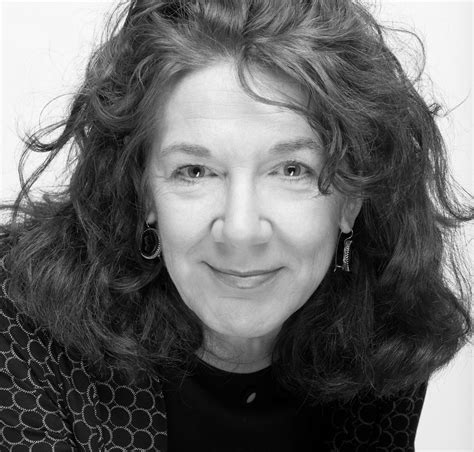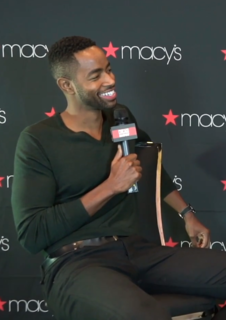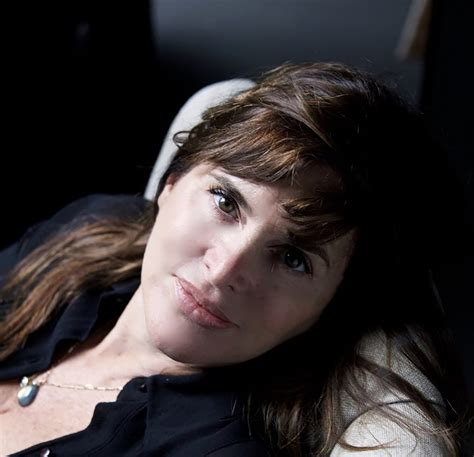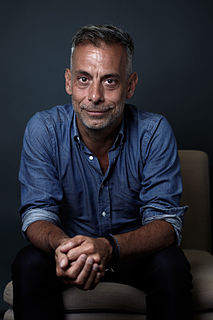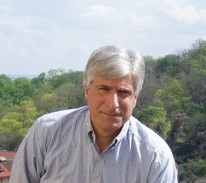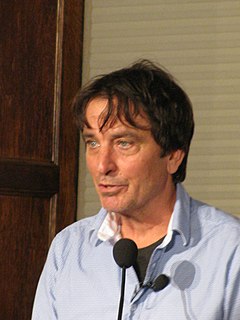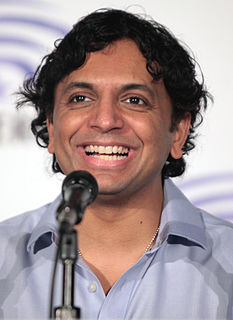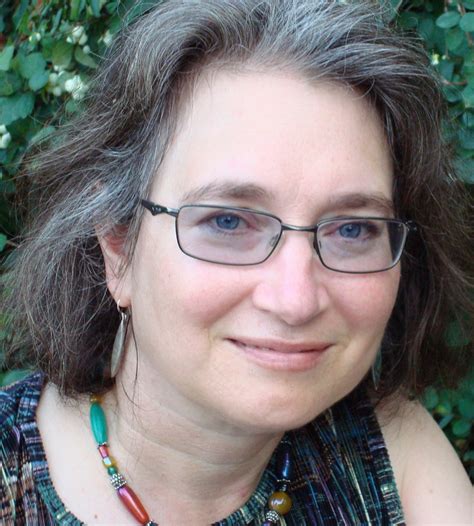Top 1200 Writers And Poets Quotes & Sayings - Page 4
Explore popular Writers And Poets quotes.
Last updated on December 19, 2024.
You were born with the seeds of your talent, the ability to observe the world around you and weave piece of it into a story. I believe that most -- if not all -- people are born with these seeds. What separates the writers from the non-writers is that the writers actually sit down and, you know... write.
I love to publish new writers, and we do so consistently. But a lot of contemporary American poets sound alike to me. They want to bring spoken, prosy language into poetry and I understand that desire. But they don't edit. It's not very curated work. It seems very lackluster, very uncareful. It may be the un-carefulness is also something they intend but there's a kind of "So what?" quality to a lot of it.
It feels as though a very disproportionate number of main characters are writers, because that's what the writer knows. Fair enough. But nothing bothers me more in a movie than an actor playing a writer, and you just know he's not a writer. Writers recognize other writers. Ethan Hawke is too hot to be a writer.
Real writers-that is, capital W Writers-rarely make much money. Their biggest reward is the occasional reader's response.... Commentators-in-print voicing big fat opinions-you might call us small w writers-get considerably more feedback than Writers. The letters I personally find most flattering are not the very rare ones that speak well of my editorials, but the occasional reader who wants to know who writes them. I always happily assume the letter-writers is implying that the editorials are so good that I couldn't have written them myself.
I guess when I was younger, I'd have assumed that in 2008 music would be full of great writers following in the tradition of the young great writers of the '60s and '70s, but it hasn't turned out that way, or at least there are no other writers around that I look at and think: 'Wow, I'm outclassed, I need to get out of this business.'
The fact is that I have lived with the belief that power, any kind of power, was the one thing forbidden to poets. ... Power requires that the inner person never be unmasked. No, we poets have to go naked. And since this is so, it is better that we stay private people; a naked public person would be rather ridiculous, what?
I am particularly conscious of my connection to the poets of the Harlem Renaissance because I, too, am a Black poet, born into, and shaped by, the very community in which those poets of the past produced so much of the work we associate with the Harlem Renaissance. We speak from the same place, both literally and metaphorically.
..few writers like other writers' works. The only time they like them is when they are dead or if they have been for a long time. Writers only like to sniff their own turds. I am one of those. I don't even like to talk to writers, look at them or worse, listen to them. And the worst is to drink with them, they slobber all over themselves, really look piteous, look like they are searching for the wing of the mother. I'd rather think about death than about other writers. Far more pleasant.
I'm not going to tell people how to write, but we do have a skill set, and the more we put ourselves out into the world as poets, as a sort of poet of the tribe, as representatives of metaphor, and try to claim space for metaphor in the inner life, that's going to be important and be helpful to poetry and bring a tension for poets writing about whatever they choose.
Sarajevo was this beautiful city, very cosmopolitan, multiethnic, full of wonderful people, artists and writers and poets and Serbs and Muslims and Croats, and living side by side. And then this medieval siege, and it was a medieval siege, came, and the Bosnian Serbs were on the hills lobbing in rockets and grenades and mortars.
Exact science and its practical movements are no checks on the greatest poet, but always his encouragement and support ... The sailor and traveller, the anatomist, chemist, astronomer, geologist, phrenologist, spiritualist, mathematician, historian and lexicographer are not poets, but they are the lawgivers of poets and their construction underlies the structure of every perfect poem.
Most poets, most good poets even, no longer have the heart to write about what is most terrible in the world of the present: the bombs waiting beside the rockets, the hundreds of millions staring into the temporary shelter of their television sets, the decline of the West that seems less a decline than the fall preceding an explosion.
He [the writer] must, teach himself that the basest of all things is to be afraid; and, teaching himself that, forget it forever, leaving no room in his workshop for anything but the old verities and truths of the heart, the old universal truths lacking which any story is ephemeral and doomed - love and honor and pity and compassion and sacrifice. See Poets & Writers
Poets are the hierophants of an unapprehended inspiration; the mirrors of the gigantic shadows which futurity casts upon the present; the words which express what they understand not; the trumpets which sing to battle, and feel not what they inspire; the influence which is moved not, but moves. Poets are the unacknowledged legislators of the world.
Writers, especially poets, are particularly prone to madness. There exists a striking association between creativity and manic depression. Why are more creative people prone to madness? They have more than average amounts of energies and abilities to see things in a fresh and original way—then because they also have depression, I think they’re more in touch with human suffering.
My biggest poetic influences are probably 20th-century British and Irish poets. So I suppose I'm always listening for the music I associate with that poetry, the telling images, the brevity. I want to hear it in my own work as well as in the poetry I read. However, I think I'm generally more forgiving of other poets than myself.
Joyce's writing in Dubliners contains some of the most unshowily beautiful sentences in the English language. I learned from him that if you write a good, clean line of English, you can get under a reader's skin. The reader won't even know why, but there you are. Didion, Berger, the many others I mentioned above, and many, many poets I haven't mentioned. Writers of this calibre are the moving targets the rest of us are always chasing.
Now I would say at any given moment in American life, there are probably 45 poets in airplanes vectoring across the country heading towards...I don't know if anyone's reading it, but poets are still flying around the country going from lectern to lectern.That circuitry has become very well-established.
We writers – and especially writers for children, but all writers – have an obligation to our readers: it's the obligation to write true things, especially important when we are creating tales of people who do not exist in places that never were – to understand that truth is not in what happens but what it tells us about who we are. Fiction is the lie that tells the truth, after all.
Poets are always making waves. I mean, you know, in an ideal situation, the ideal republic can't tolerate poets because - it isn't that they mutter and criticize; it is that the poet does not accept the situation called the 'perfect' condition of man - in other words, perfect in the materialistic sense.
On every full moon, rituals ... take place on hilltops, beaches, in open fields and in ordinary houses. Writers, teachers, nurses, computer programmers, artists, lawyers, poets, plumbers, and auto mechanics -- women and men from many backgrounds come together to celebrate the mysteries of the Triple Goddess of the Dance of Life. The religion they practice is called Witchcraft.
I am always interested in why young people become writers, and from talking with many I have concluded that most do not want to be writers working eight and ten hours a day and accomplishing little; they want to have been writers, garnering the rewards of having completed a best-seller. They aspire to the rewards of writing but not to the travail.
I think that poets can say, "What we want is for everybody on earth to wake up free from fear and with access to medicine and clean water and education." But I don't think poets have any special insight on how to get there. And the 20th century is a pretty good record of that because so many of the great poets were Stalinists: Vallejo, Neruda, Eluard, Aragon, etc. They wrote their odes to Lenin and Stalin. They glorified some of the most violent and grotesque dictatorships of the 20th century. And a lot of the ones who were not Stalinists were fascists or fascist sympathizers.

















